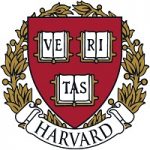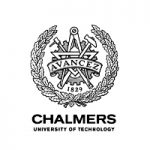项目介绍
The Department of Astronomy offers a rich and varied program of theoretical, observational, and experimental graduate work leading to the PhD in astronomy. Research is carried out at the Harvard College Observatory, which shares buildings and general facilities with the Smithsonian Astrophysical Observatory. Together, the two observatories constitute the Harvard-Smithsonian Center for Astrophysics (CfA): a large and diverse research setting that provides opportunities in nearly every branch of astrophysical work, from atomic physics to cosmology using the full range of techniques from gamma ray detectors through radio antennas.
Over 360 PhD scientists are engaged in work at the CfA, providing students with an unusually wide choice of dissertation topics and stimulating opportunities for both formal and informal learning through courses and seminars. Graduate students at Harvard benefit from this diverse environment, have access to extensive facilities, and pursue their work in a supportive and stimulating setting.
The program of graduate study is designed to make Harvard PhD students first-rate researchers with a broad knowledge of astrophysics and competence in teaching. To do this, we have constructed an advising program and a set of requirements to help students develop their astrophysical understanding, and to carry through a successful thesis in a timely way.
Learn more about the facilities and research areas available to graduate students.
Admissions Requirements
The Department of Astronomy does not require the GRE General test. The Physics Subject GRE is optional. In the Advanced Coursework section of the online application, prospective students must indicate a list of their four most advanced courses in astronomy and their two most advanced courses in mathematics, including textbooks (and authors) used in each course.
The department expects candidates for advanced degrees to develop professional competence in a chosen area of research and to acquire sufficient general knowledge to understand and follow important developments in other areas of astronomy and astrophysics. Candidates are admitted directly to the PhD program. Students are not accepted for a separate master’s degree program. The duration of graduate study should not ordinarily exceed five years, and students in their sixth year are encouraged to finish promptly.
Prospective candidates are always welcome to visit the Center for Astrophysics to meet the faculty and students. More information is available from the Department of Astronomy and GSAS Policies details specific program requirements.
Financial Support
Graduate students in the Department of Astronomy receive full financial support from a combination of national or University fellowships, teaching fellowships, and research assistantships for up to six years. Students gain teaching experience during their graduate career by teaching part-time (usually 10 hours a week) during two terms.
Prospective students are urged to apply for outside fellowships that offer tuition and/or stipend support during graduate school. Among the many fellowships available are the National Science Foundation Graduate Research Fellowships, the Hertz Foundation, the National Defense Science and Engineering Graduate Fellowship, and the NASA Graduate Student Researchers Project. International students should apply for outside funding such as the Fulbright and Knox fellowships.
Theses & Dissertations
Theses & Dissertations for Astronomy
Astronomy Faculty
联系方式
电话: (617) 495-1000相关项目推荐
KD博士实时收录全球顶尖院校的博士项目,总有一个项目等着你!






